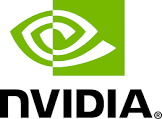$NVDA $MSFT $GOOGL
#AI #Stocks #TechInvesting #NVDA #MSFT #GOOGL #ArtificialIntelligence #StockMarket #Investing #Technology #AIStocks #Equities
After Nvidia’s meteoric rise fueled by its dominance in AI computing chips, the attention of investors in the financial market is beginning to pivot toward other players in the artificial intelligence ecosystem. Nvidia’s success has proven that AI has meaningful revenue-generating power beyond just theoretical potential, resulting in a surge of investor appetite for companies that are integrating AI into their business models. Companies beyond Nvidia, particularly those leveraging AI technologies as part of scalable operations, may represent the next wave of market interest. Firms embedded in AI-focused software, cloud services, and data analytics are likely to see stronger inflows and coverage as the focus shifts from hardware-dependence to end-use applications.
Microsoft, for instance, has been steadily increasing its footprint in AI through its partnership with OpenAI and integration of ChatGPT into its Azure cloud platform and Office services. The scalability of these tools aligns with trends increasingly attractive to both enterprise solutions and individual users. With artificial intelligence increasingly becoming a central part of its software infrastructure, the potential for Microsoft’s recurring revenue model to strengthen further holds strong appeal for growth-oriented investors. Similarly, Alphabet (Google’s parent company) is advancing with AI-driven applications to empower its advertising platform and cloud services, which remain key verticals of profitability for the company. Investments into these high-potential projects could diversify revenue and possibly position companies like Microsoft and Alphabet as some of the most favorable AI-centric long-term options in the tech landscape.
The rally in Nvidia’s shares underscores a clear message: markets reward companies with direct profitability links to AI with premium valuations. But the hardware story, led by Nvidia, is only part of a larger movement. Companies integrating AI in personalized ad frameworks, financial algorithms, autonomous driving, and predictive healthcare tools are showing investors that AI could bring transformative changes to countless industries. For the AI market’s broader segments, including consumer engagement and enterprise SaaS (Software as a Service), growth is likely to become a key theme. As more industries adapt and scale these technologies, equity markets could reprice key AI-related holdings higher in anticipation of future revenue growth driven by these advancements.
Nonetheless, the current rush toward AI-related investments comes with potential risks. Overvaluations are increasingly a concern following Nvidia’s unprecedented boom. Investors should carefully examine company fundamentals, future growth drivers, and whether AI integration actually delivers a framework for sustained profitability rather than being part of a temporary hype cycle. While Nvidia’s strategic advantage in chips has set a high bar, sustained price appreciation in AI-related stocks may require clear evidence of how AI applications contribute to a company’s bottom line. This trend underscores that, although the potential is vast, disciplined investing strategies will remain critical as the AI sector matures.











Comments are closed.